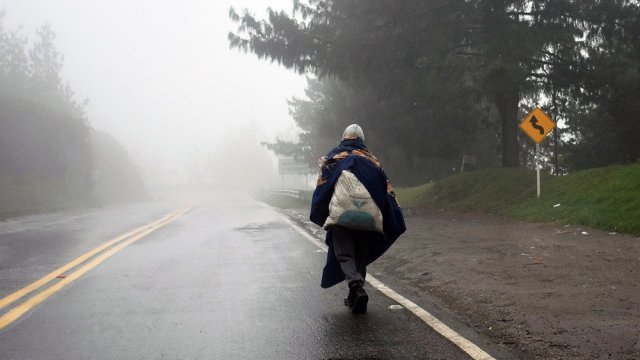
When she was certain the gunfire had stopped, Ana Teresa Castillo helped up the children she had been shielding with her body.
They had been crossing an illicit trail linking Colombia and Venezuela when a shootout erupted between armed criminal gangs vying for control of the lucrative smuggling route.
The group hurried the rest of the way into Colombia, a 10-minute walk away. Castillo brought the children safely to her home. It was only then she noticed they had defecated themselves.
These weren’t Castillo’s children – just three of the hundreds of unattended kids and thousands of adults who cross every day from San Antonio, Venezuela into La Parada, Colombia via the illegal routes known as trochas in search of food, work, medical attention, or schooling.
“Who lets their children cross the trochas alone?” asked Castillo, speaking to The New Humanitarian in the small shelter for women she runs out of her home in the borderland neighbourhood. “I couldn’t just leave them there.”
Fearing for their personal safety or seeking employment abroad, Venezuelans have been fleeing their collapsing nation for years. Inflation has risen 3,012 percent in the past year alone, and healthcare, education, and employment have all but disappeared. Escalating conflicts in the border state of Apure between the Venezuelan military and leftist Colombian armed groups displaced at least 6,000 people in March and may also be adding to the flow of refugees.
For those who feel they have no choice but to brave the journey out of Venezuela, these kinds of illegal paths are increasingly the only option.
A year into the pandemic, as South American countries continue to reel from second and third waves of infections, land borders in Colombia, Peru, Ecuador, Chile, and Bolivia remain officially closed. Many are heavily militarised, leaving desperate Venezuelans forced to cross a continent along dangerous frontier routes controlled by criminals.
To continue reading click here.

